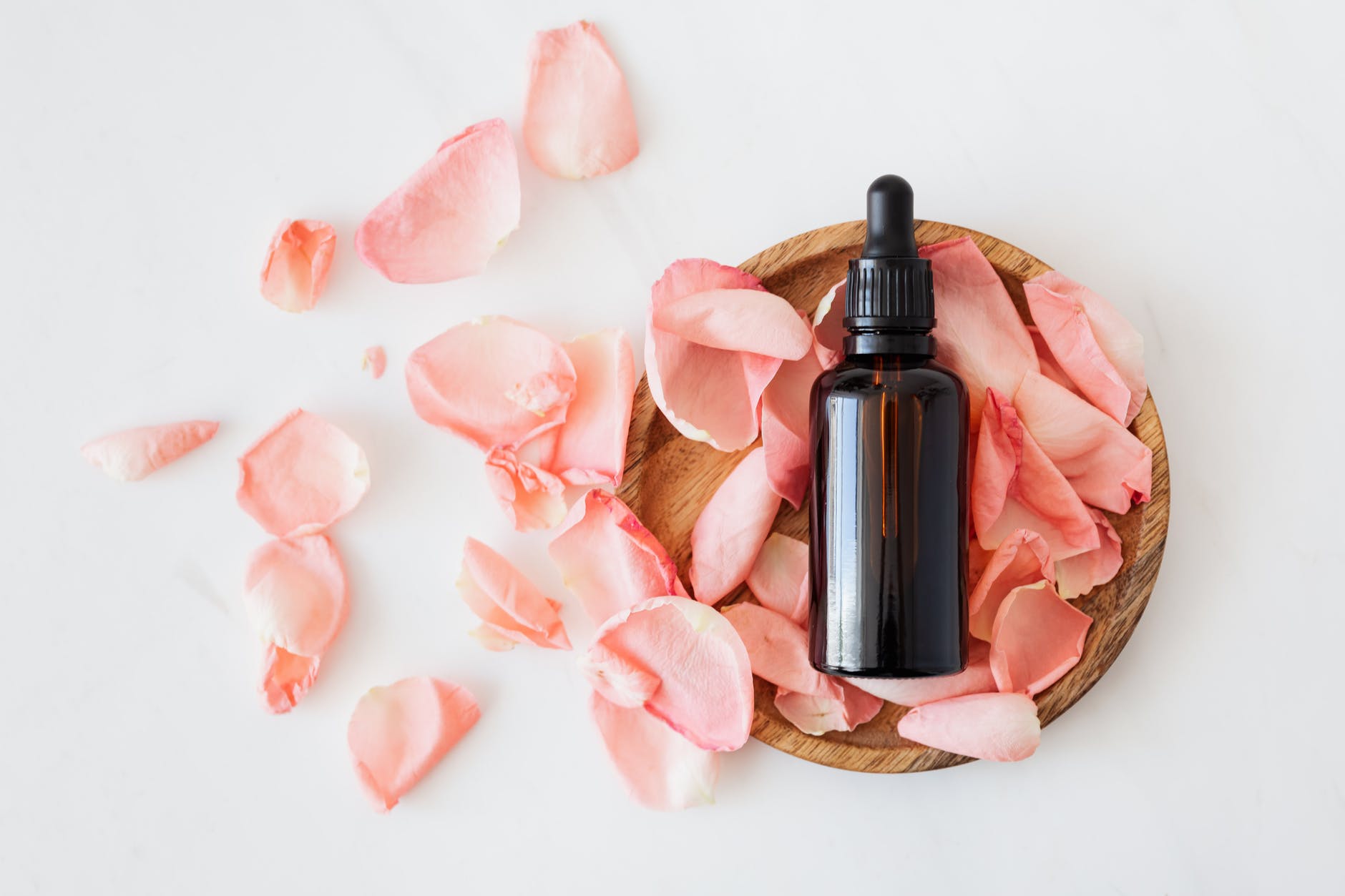Are Essential Oils Really Effective?

Have you ever thought about how do essential oils really work? The term essential oils are becoming quite popular recently, and many brands can be seen promoting different essential oil products.
In this article, we have explained everything you need to know about essential oils. We have covered it all from “what are essential oils” to types of essential oil and health benefits.
What are essential oils?
Essential oils are natural compounds that are extracted from plants. These compounds have the scent, flavor, properties, and essence of the plant.
Each essential oil gets its unique characteristics from its aromatic compounds. Essential oils are derived through the process of distillation or cold pressing.
After extracting the aromatic chemicals, these are mixed with a carrier oil to create the essential oil.
Extracting essential oil is of utmost importance, as the oils extracted through chemical processes are not true essential oils.
How do essential oils work?
There is a lot of confusion in the minds of people in regard to “how do essential oils work?”
Essential oils are commonly used in aromatherapy, to be inhaled via various methods, but are not meant to be swallowed.
The chemicals present in the essential oils interact with our bodies in numerous ways. When we inhale the aroma of essential oils, it stimulates the limbic system, a part of the brain that is responsible for a sense of smell, emotions, behaviors, and long-term memory.
The limbic system also controls several unconscious physiological functions like heart rate, breathing, and blood pressure. Essential oils can also exert a physical effect on the body.
Types of essential oils:
There are more than 90 different types of essential oils with unique health benefits and smell.
We have shared a list of the best ten types of essential oils:
- Peppermint: provides an energy boost and improves digestion
- Lavender: relieves stress
- Sandalwood: calming effect on nerves and improve focus
- Bergamot: Reduce stress and improve skin conditions like eczema
- Rose: used to reduce anxiety and improve mood
- Chamomile: improves mood and provides relaxation
- Ylang-Ylang: used to treat headaches, nausea, and skin allergies
- Tea Tree: fights infections and boosts immunity
- Jasmine: used to help with childbirth, depression, and libido
- Lemon: improves mood, digestion, headaches, and more
Health benefits of essential oils
Essential oils have endless health benefits and the ability to treat certain conditions. We have put down a list of some health benefits of essential oils and aromatherapy. Let’s take a look:
Stress and anxiety
Essential oils can be effective for treating anxiety and stress. Around 43% of the people suffering from anxiety use some form of aromatherapy to relieve stress. (source)
Many studies on aromatherapy have shown positive conclusions on how the smell of these oils works well with traditional stress and anxiety-relieving therapy.
When using essential oils during body massage can help relieve stress for a short time.
Headaches and migraines
Yes, you read it right. Essential oils are good for treating headaches and migraines. During the 1990’s it was found in a study that dabbing ethanol and peppermint mixture on the temples and foreheads relieves headache. (sources)
Lavender oil, chamomile oil, sesame oil, and peppermint oil can treat headaches when applied to the temples.
Sleep and insomnia
Lavender essential oils are used for treating insomnia and sleep better. Smelling lavender oil helps to improve sleep quality in people with heart diseases and post-pregnancy women.
Reducing inflammation
Studies show that essential oils have anti-inflammatory effects on the body. Essential oils can also minimize allergies and inflammation. These help to fight inflammatory conditions in the body.
A study conducted on mice concluded that ingesting a mixture of oregano and thyme essential oils can reduce colitis’s remission. Rosemary and caraway oil mixture also showed similar results. (source)
However, there is less proof of essential oil effects on the human body in terms of inflammatory effects.
Antibiotic and antimicrobial
Certain essential oils also have antimicrobial and antibiotic properties. Severa test-tube studies have researched that essential oils like tea tree oil and peppermint oil used extensively for their antimicrobial effects have positive results.
Read more: 18 essential oils to lower blood pressure
Other uses of essential oils:
Essential oils have various uses other than aromatherapy.
- People use essential oils to freshen up their homes, laundry, and cupboards.
- Essential oils are also added to cosmetic and skincare products.
- Certain essential oils can extend the shelf life of food.
- Essential oils make a great natural mosquito-repellent like the DEET.
Oils like citronella can repel mosquitos for more than 2 hours, and with the combination of vanillin, the rippling timeline can be increased.
Tips for choosing the right essential oils
Many companies claim to have pure essential oils; however, these claims are rarely true.
Essential oils are an unregulated industry product, which means that quality and composition can vary highly.
We have mentioned some tips to help you identify the high-quality essential oils:
- Purity: look for an oil that contains aromatic plant compounds without added synthetic or additives oils. Pure essential oils have a plant’s botanical name like (Lavandula officinalis) instead of lavender essential oil.
- Quality: a true essential oil does not undergo a lot of change during extraction. Choose an essential oil that is chemical-free or derived through cold pressing.
- Reputation: purchase the oil from a reputed brand with high-quality products.
Side effects and risk associated with essential oils
Not all-natural products are safe to use. Plants and herbal products contain bioactive compounds that can harm your health, and the same applies to essential oils as well.
Inhaling or combining essential oils with a base oil to apply on skin, is completely safe to use. When inhaling, consider the people around you like a pregnant woman, pets, and children, etc.
Some common side effects of essential oils are:
- rashes
- asthma attacks
- headaches
- allergic reactions
Essential oils that are prone to cause side effects are peppermint, lavender, ylang-ylang, and tea-tree.
Cinnamon oil is high in phenols and can cause skin irritation. never apply essential oils directly on the skin without the use of any base oil. Essential oils extracted from citrus fruits can also increase the risk of reaction to sunlight and sunburn.
The bottom line
Essential oils are used very commonly in aromatherapy and also in skincare products nowadays. There are different types of essential oils, and each has unique properties. In this article, we have mentioned in detail how essential oils work and the health benefits of essential oils. Essentials oils can treat many minor health conditions and ailments like headaches, anxiety, and nausea. Etc Before you use any essential oil, consult with your doctors for safety precautions.




